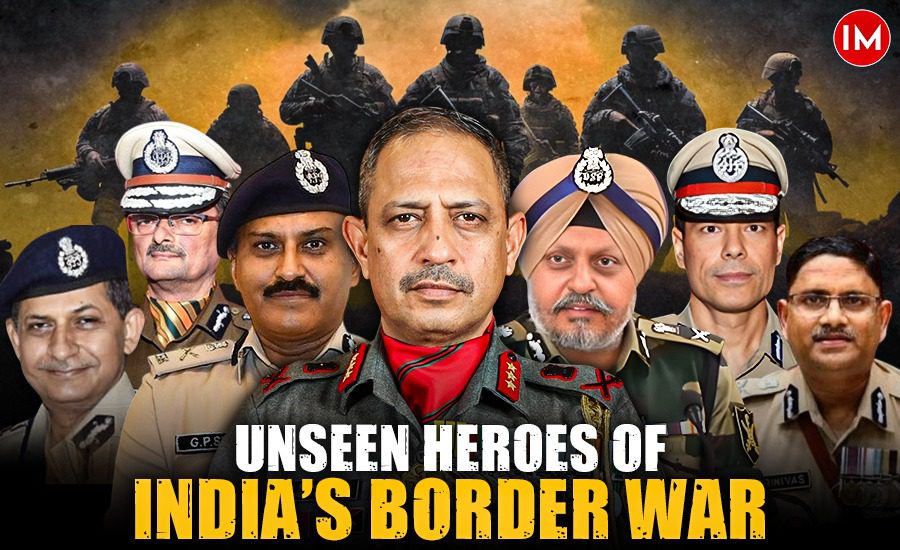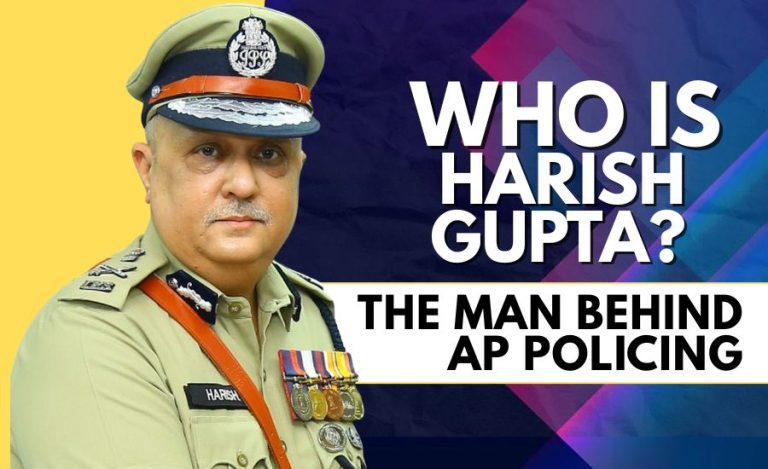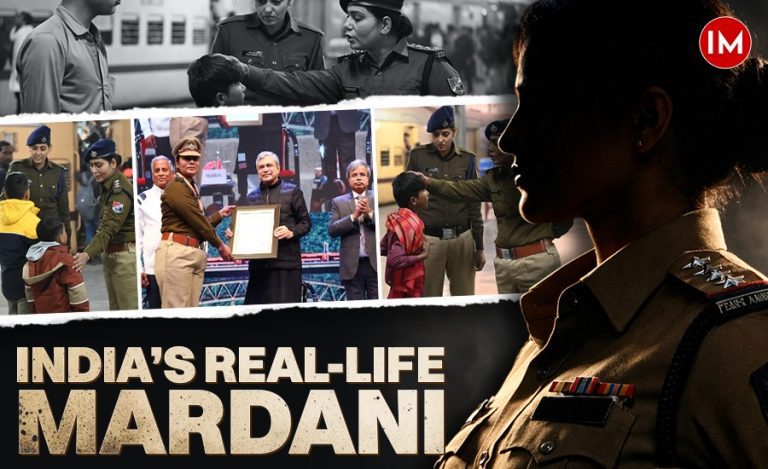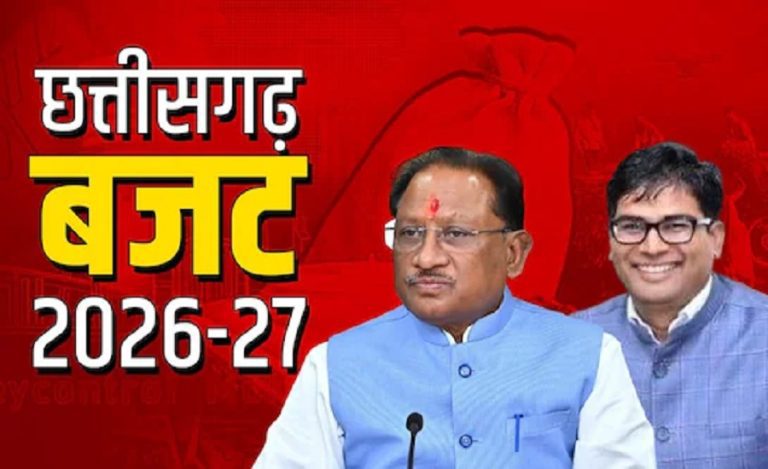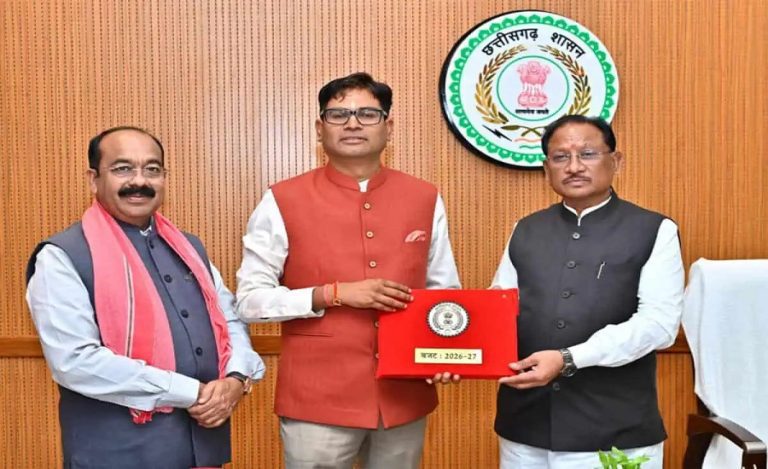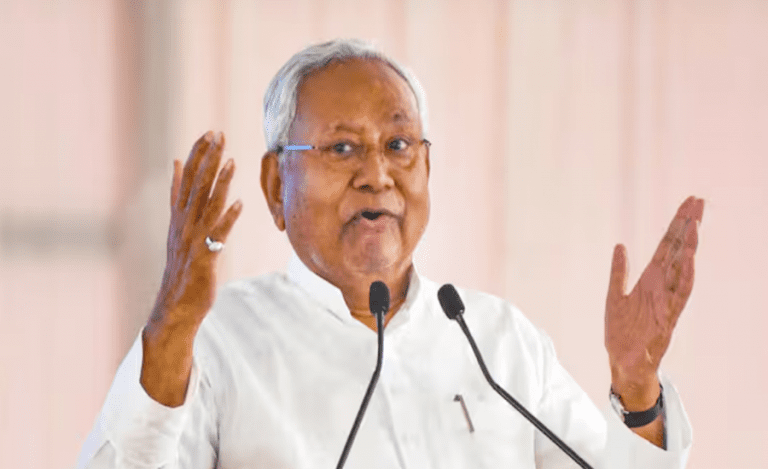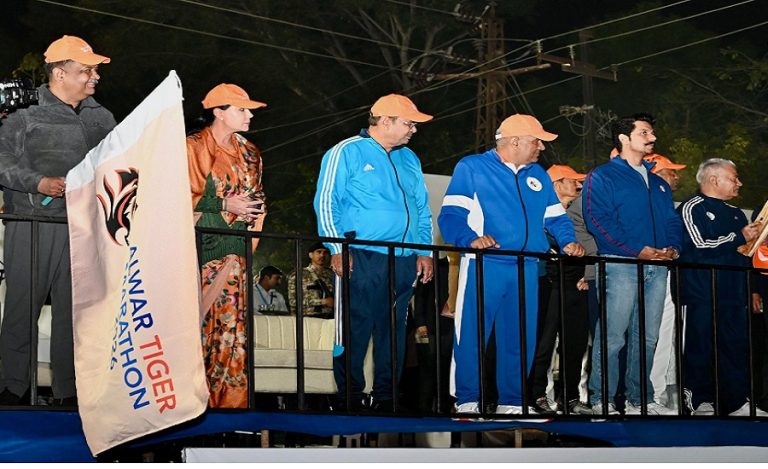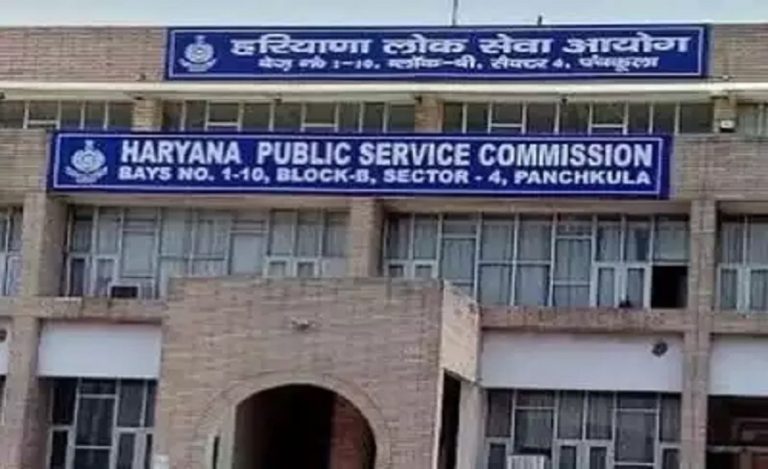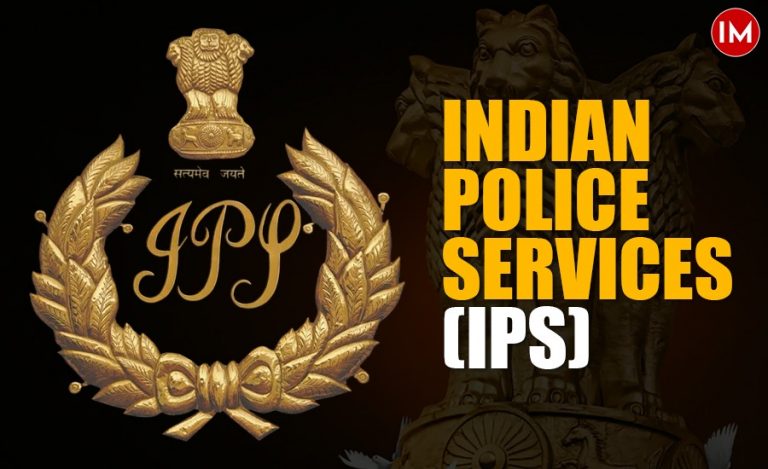On May 6, the Indian Army launched Operation Sindoor – a precise and strategic strike targeting terrorist infrastructure in Pakistan and Pakistan-occupied Jammu and Kashmir (PoK). This decisive action came in direct response to the horrific terrorist attack in Pahalgam, which claimed 26 innocent lives, including that of a Nepali national.
Following the operation, Pakistan attempted to escalate tensions by targeting Indian civilians near the border. However, the Indian Army has been responding with strength and precision, ensuring a robust defense of the nation’s sovereignty.
Amid rising cross-border threats and heightened tensions, the Indian government is conducting continuous reviews of internal security, especially in vulnerable border regions. In light of this, Union Home Minister Amit Shah and Defence Minister Rajnath Singh have held high-level meetings with various paramilitary forces – key pillars of India’s internal security apparatus.
With their specialized capabilities and operational flexibility, these forces play a vital role in maintaining national security. Their leadership, often drawn from seasoned officers of the Indian Police Service (IPS) and the armed forces, is focused on modernizing and strengthening these units to meet evolving challenges.
Indian Masterminds brings you an in-depth look at these frontline forces and the leaders guiding them, as they work tirelessly to safeguard the nation and uphold peace in turbulent times.
The Forces
India is home to seven Central Armed Police Forces (CAPFs), formerly known as central paramilitary forces, which operate under the Ministry of Home Affairs (MHA). Together, these forces comprise over one million personnel, forming the backbone of the country’s internal security and border management. Each force has a distinct mandate – from counter-insurgency and border protection to disaster response and law enforcement – making them indispensable to India’s national security framework.
1- Central Reserve Police Force (CRPF)
The CRPF, headquartered in New Delhi, is the largest paramilitary force in India. It is primarily tasked with maintaining internal security, conducting counter-insurgency operations, and assisting state police forces during elections and periods of unrest.
Gyanendra Pratap (GP) Singh, Director General (DG): Mr Singh, a 1991-batch IPS officer from the Assam-Meghalaya cadre, assumed charge as the Director General of the CRPF on January 30, 2025. Prior to this, he served as the Director General of Police (DGP) of Assam from 2023 to 2025. His career includes significant stints with the Special Protection Group (SPG) and the National Investigation Agency (NIA). He is widely known for his uncompromising stance against violent insurgent groups and organized crime.
Born on November 8, 1967, Mr Singh hails from Aligarh district in Uttar Pradesh and holds an M.Sc. degree. His daughter is a Delhi-cadre IPS officer currently posted as ACP in Lajpat Nagar, Delhi.
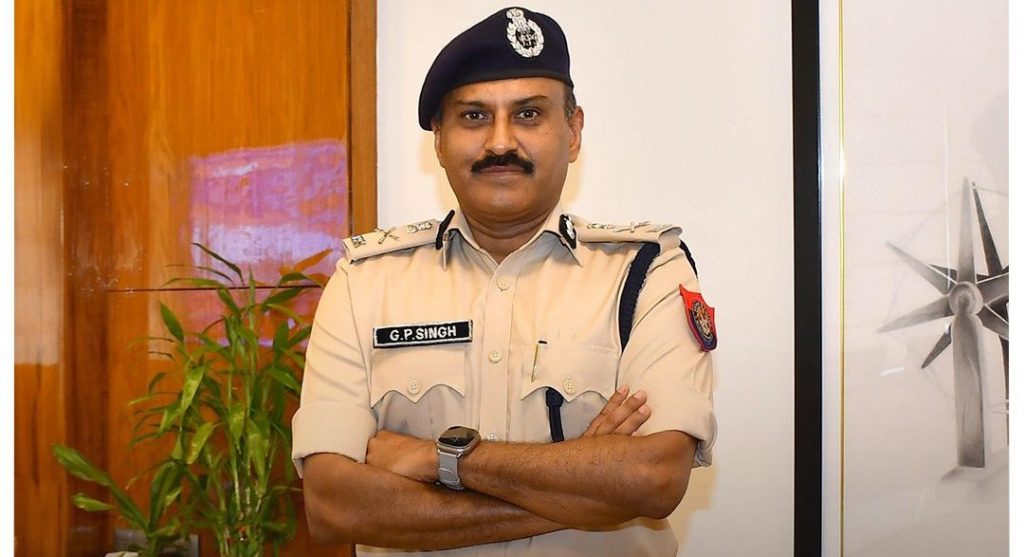
As DGP of Assam, Mr Singh played a pivotal role in maintaining law and order and was instrumental in advancing efforts by the Centre and the Assam government to bring insurgents from troubled regions — including the Bodo Territorial Region, the Karbi Anglong and Dima Hasao hill districts, inter-border areas of Barak Valley, and parts of Upper Assam affected by ULFA (Independent) – back into the mainstream.
During his tenure as Inspector General at the NIA, he oversaw key terror investigations, including cases related to Jammu & Kashmir and the 2019 Pulwama attack, as well as insurgent activities in the Northeast. His time at the NIA was cut short when the Home Ministry, in consultation with the Assam government, deputed him in 2019 as Special DG (Law and Order) to manage the anti-Citizenship Amendment Act protests in Assam.
Earlier in his career, in 2002, Mr. Singh was inducted into the SPG, where he was entrusted with the vital task of protecting two Prime Ministers of India – Atal Bihari Vajpayee and Dr. Manmohan Singh – reflecting the high level of trust placed in his abilities.
2- Border Security Force (BSF)
The BSF is one of India’s Central Armed Police Forces, tasked with guarding the country’s land borders during peacetime and preventing trans-border crimes such as smuggling and infiltration. It operates primarily along the India-Pakistan and India-Bangladesh borders. The BSF was established in the aftermath of the Indo-Pak War of 1965 to strengthen border security and address related challenges.
Daljit Singh Chaudhary, Director General (DG): Born on November 23, 1965, in New Delhi, Mr Chaudhary is a 1990-batch IPS officer from the Uttar Pradesh cadre. He assumed charge as the Director General of BSF on January 23, 2024, following the premature repatriation of Nitin Agrawal. This appointment is part of the government’s strategic efforts to bolster national security. In February 2024, he was also given additional charge of the National Security Guard (NSG).
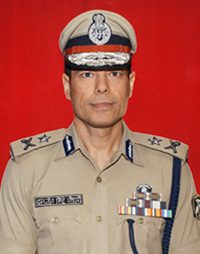
Before leading the BSF, Mr Chaudhary served as the Director General of Sashastra Seema Bal (SSB), and prior to that, he held senior positions in the CRPF, including as Special Director and Additional Director General. His earlier roles include serving as ADG (Law and Order) in the Uttar Pradesh Police. He holds degrees in Science (B.Sc.) and Law (LL.B.) and is particularly known for his decisive role in counter-terrorism operations.
Over his distinguished career spanning more than three decades, Mr. Chaudhary has been recognized with several honors, including four Police Medals for Gallantry, the Police Medal for Meritorious Service, the President’s Police Medal for Distinguished Service, and the Ati Utkrisht Seva Medal. A skilled marksman and qualified skydiver, his profile stands out for its depth and versatility.
Mr. Chaudhary has been involved in numerous high-risk encounters, particularly during his tenures as SSP of Etawah and DIG of Kanpur Range, where he led operations that resulted in the elimination or surrender of over 50 dacoits. He has also served as Captain of the Special Task Force (STF) and held key postings across Uttar Pradesh, including as ADG (Law and Order).
Since 2017, he has served on Central Deputation, contributing to various national security agencies such as the Indo-Tibetan Border Police (ITBP) and the CRPF. His leadership in these roles has consistently demonstrated his capability in handling complex and high-stakes security challenges.
3- Central Industrial Security Force (CISF)
The Central Industrial Security Force (CISF), established in 1969 with just three battalions, has since evolved into a premier, multi-skilled force with over 1.88 lakh personnel. The CISF provides security to 359 vital installations across India, including airports, nuclear and space facilities, power plants, seaports, government buildings, the Delhi Metro, iconic monuments, and the Parliament complex. The force also operates a dedicated Fire Wing that serves 115 sites and a specialized VIP Security Wing for high-profile protectees.
Rajwinder Singh Bhatti, Director General (DG): Born on September 27, 1965, Mr Bhatti is a 1990-batch IPS officer from the Bihar cadre. He assumed the role of Director General of CISF on September 1, 2024, succeeding IPS Neena Singh, who made history as the first woman to head the force.
Mr Bhatti hails from Tarn Taran district in Punjab and comes from a Sikh family. His son-in-law, Maninder Singh, is a Punjab-cadre IPS officer currently posted as ACP in Amritsar. Prior to his appointment as DG of CISF, Mr. Bhatti served as the Director General of Bihar Police from December 2022 to August 2024. He also held the position of Joint Director of the Multi-Disciplinary Monitoring Agency (MDMA) in the CBI.
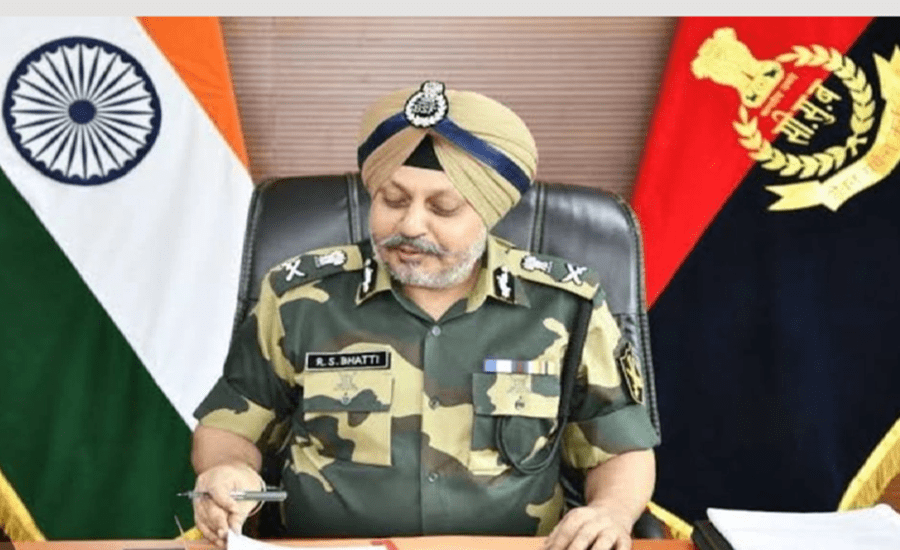
A Chartered Accountant by training, Mr. Bhatti holds an M.Phil degree and has held several key positions both in Bihar and within the central government. His name is often associated with significant reforms in crime control and policing in Bihar. During his probation as the SHO of Bihpur, Bhagalpur in 1991–92, a period marked by high levels of crime, he took decisive action against notorious gangs led by Kosho Kunwar and Kailash Mandal in Navgachiya. His fearless crackdown during the gang wars earned him widespread respect and established him as a respected figure in law enforcement.
4- Indo-Tibetan Border Police (ITBP)
The ITBP is responsible for guarding the India-China border and is specially trained in high-altitude warfare. The force also plays a vital role in disaster response and rescue operations in mountainous regions. Headquartered in New Delhi, the ITBP was established in the aftermath of the 1962 Sino-Indian War to strengthen India’s border security in the Himalayan frontier.
Rahul Rasgotra, Director General (DG): Mr Rasgotra, born on September 28, 1965, in Mumbai, is a 1989-batch IPS officer from the Manipur cadre. He has been serving as the Director General of ITBP since December 28, 2023. Mr. Rasgotra earned a B.A. (Hons) in Economics from Hindu College, University of Delhi, and later completed a diploma in Public Administration from Harvard University, USA – a testament to his academic and administrative acumen.
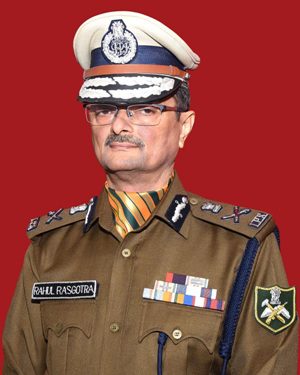
Mr Rasgotra has served extensively in the Intelligence Bureau (IB), with key postings in sensitive areas like Jammu & Kashmir and Chhattisgarh. He also headed the Multi-Agency Centre (MAC), India’s primary counter-terrorism coordination hub created in the wake of the Kargil conflict, demonstrating his leadership in intelligence integration and national security operations.
His expertise in international counter-terrorism coordination is further underscored by his assignments with Indian missions in Islamabad and Washington under the Ministry of External Affairs, where he worked closely on intelligence and security cooperation.
For his exceptional service, Mr. Rasgotra has been honored with numerous awards, including the President’s Police Medal for Distinguished Service, the Police Medal for Meritorious Service, the Intelligence Efficiency Medal, and the Medal for Exceptional Intelligence Skills.
5- Sashastra Seema Bal (SSB)
The SSB is a Central Armed Police Force of India tasked with guarding the country’s borders with Nepal and Bhutan. It also engages in anti-smuggling and anti-trafficking operations while promoting local cooperation through various civic action programs. Originally established as the Special Service Bureau in 1963, it was renamed Sashastra Seema Bal in 2004.
Amrit Mohan Prasad, Director General (DG): Born on August 22, 1965, in Odisha, Mr Prasad is a 1989-batch IPS officer from the Odisha cadre. He has been serving as the Director General of SSB since September 15, 2024.
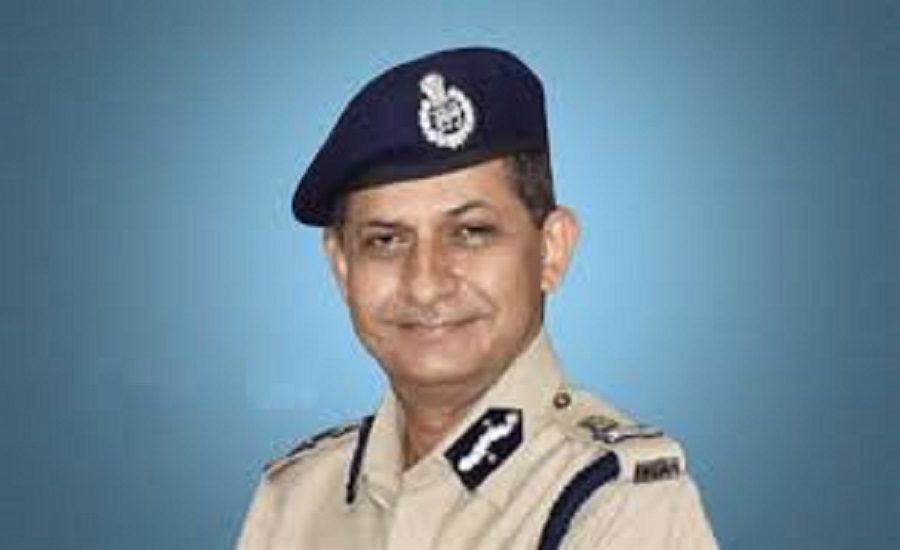
Mr Prasad has held numerous key positions within the Odisha Police and has also served as the Chief of the Bureau of Civil Aviation Security (BCAS), where he was responsible for aviation security across India. He is a recipient of the Police Medal for Meritorious Service and the President’s Police Medal for Distinguished Service, in recognition of his exceptional contributions to law enforcement.
6- Assam Rifles (AR)
As the oldest paramilitary force in India, the Assam Rifles, headquartered in Shillong, Meghalaya, operates under the administrative control of the Ministry of Home Affairs but is deployed operationally under the Indian Army. Primarily stationed in the Northeast, the force plays a crucial role in counter-insurgency operations and border guarding along the Myanmar frontier. In light of increasing border tensions with Pakistan, the Assam Rifles’ role becomes even more pivotal, ensuring security along other borders and preventing additional strain on India’s military resources.
Lieutenant General Vikas Lakhera, Director General (DG): LG Lakhera, AVSM, SM, assumed office as the 22nd Director General of Assam Rifles on August 1, 2024, succeeding Lt Gen Viresh Pratap Singh Kaushik. Commissioned into the 4th Battalion of the Sikh Light Infantry on June 9, 1990, after graduating from the Indian Military Academy, Lt Gen Lakhera has held several key leadership positions, including Inspector General of Assam Rifles (Nagaland) and Additional Director General of Military Operations (Information Warfare).
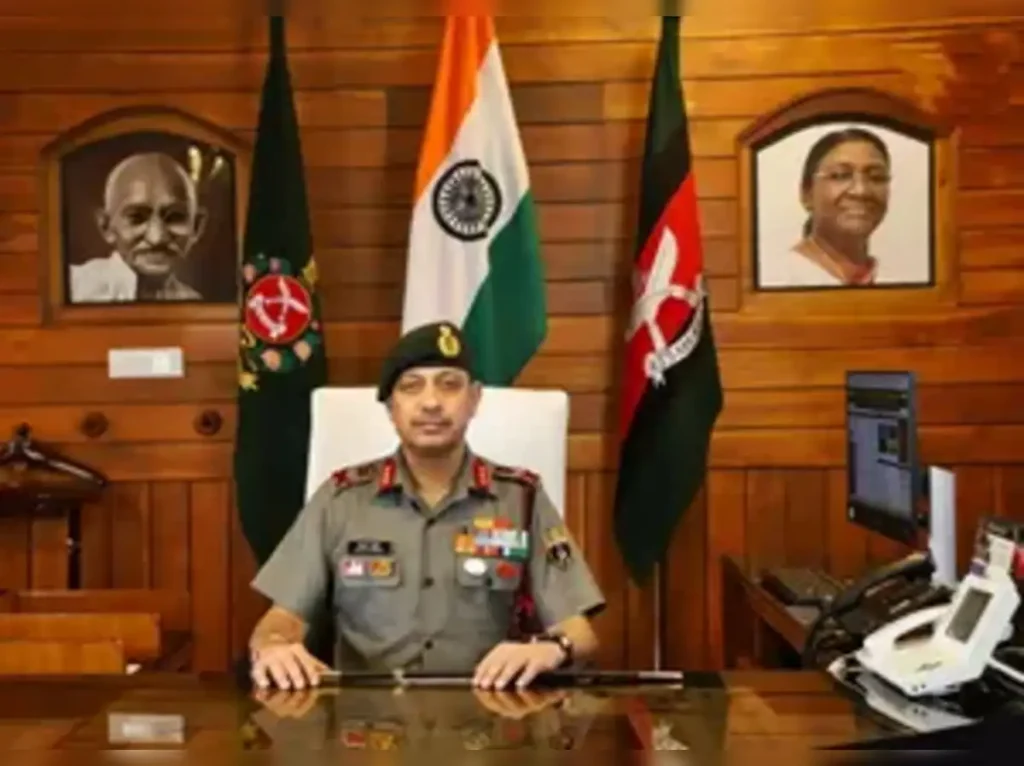
With extensive experience in counterinsurgency and counterterrorism operations in Jammu & Kashmir and Northeast India, Lt Gen Lakhera’s service has been recognized with prestigious awards, including the Ati Vishisht Seva Medal, Sena Medal, and multiple commendations, such as a Chief of Army Staff Commendation Card and two Army Commander Commendation Cards.
Academically, Lt Gen Lakhera holds an MSc from Madras University, an MA from King’s College London, and an MMS from Osmania University. He is an alumnus of the Defence Services Staff College (Wellington), the College of Defence Management (Secunderabad), and the Royal College of Defence Studies (London).
7- National Security Guard (NSG)
NSG, also known as the “Black Cats,” is India’s elite counter-terrorism force, specialized in handling high-risk operations such as hostage rescues, bomb disposal, and counter-hijacking missions. Raised in 1984, the NSG is tasked with dealing with terrorism and anti-hijacking operations at a national level.
Brighu Srinivasan, Director General (DG): Mr Srinivasan, a 1992-batch IPS officer from the Bihar cadre, is the current Director General of the NSG. Before assuming this role, he served as the Director at the Bihar Police Academy.
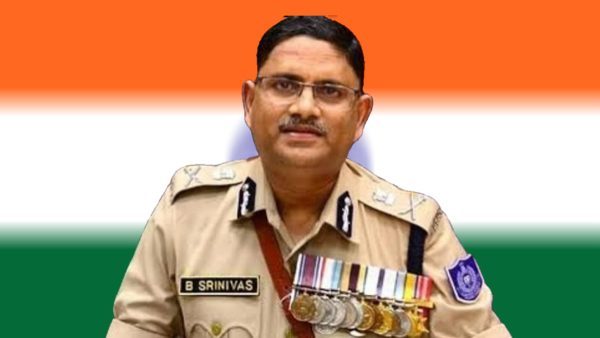
In February 2024, he was empanelled for the rank of Director General. His appointment as the DG of NSG is effective from the date of assuming charge until his retirement on August 31, 2027. Mr Srinivasan has also had a notable tenure in Puducherry, further strengthening his diverse experience in law enforcement.

